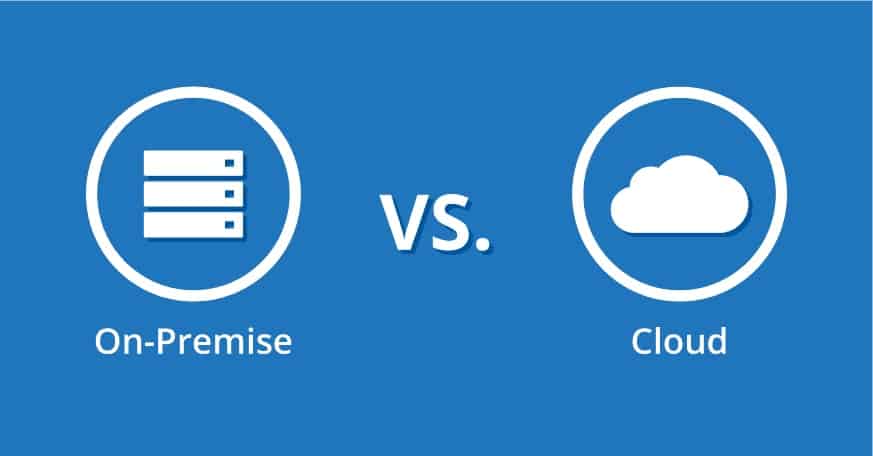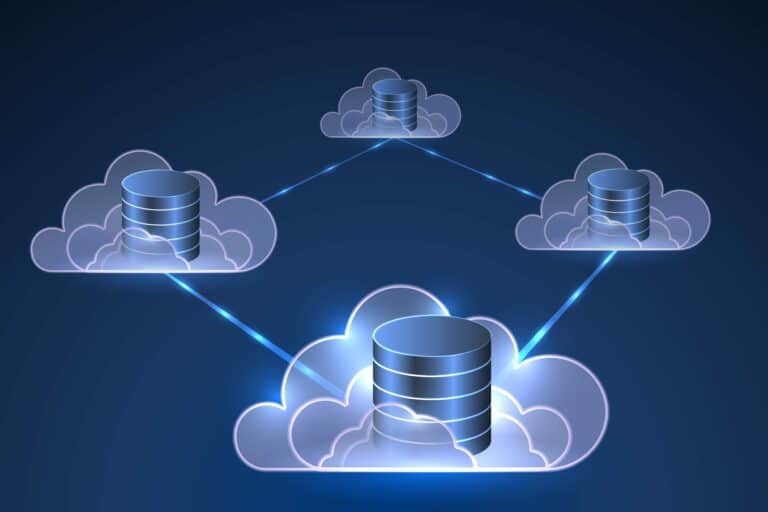Cloud vs. on-premise database solutions: weighing the pros and cons
As a custom database software development company, we understand the intricacies and challenges of choosing the right database solution for your business. With a myriad of options available, the decision between cloud-based and on-premise databases can be quite perplexing. In this blog post, we aim to guide you through the pros and cons of each solution, helping you make an informed decision based on your unique requirements. Keep reading, and don’t hesitate to reach out to our experts to find the perfect solution tailored to your project’s needs.
What are cloud and on-premise database solutions?
Before delving into the pros and cons, let’s define these two popular database solutions:
- Cloud database solutions: A cloud database is a database service built, hosted, and delivered via the internet through a cloud computing platform. Cloud databases can be public, private, or hybrid, providing different levels of access and control.
- On-premise database solutions: An on-premise database is hosted on your organization’s physical servers within your premises. The organization is responsible for managing, maintaining, and securing the database infrastructure.
Cloud database solutions: pros and cons
- Pros of cloud database solutions
- Scalability: Cloud databases offer virtually unlimited scalability, enabling you to increase or decrease your storage and computing resources as needed. This flexibility allows you to adapt to changing business requirements and accommodate growth without incurring significant upfront costs.
- Cost-effectiveness: With a cloud database, you typically pay for the resources you consume, without the need to invest in expensive hardware and maintenance. This pay-as-you-go model can save you money, especially for businesses with fluctuating workloads.
iii. Simplified management: Cloud service providers handle most of the management tasks, such as backups, updates, and security, allowing your IT team to focus on other priorities.
- Accessibility: Cloud databases can be accessed from anywhere with an internet connection, making them ideal for businesses with remote employees or multiple office locations.
- Cons of cloud database solutions
- Dependence on internet connectivity: As cloud databases rely on internet connectivity, any downtime or slow connection can disrupt your access to the database, potentially impacting your business operations.
- Data security and privacy concerns: Storing sensitive data in the cloud can be a cause for concern for some organizations due to the potential risk of data breaches and unauthorized access. While reputable cloud service providers invest heavily in security measures, the risk cannot be eliminated.
iii. Limited customization: Although cloud database solutions offer various configurations, they might not provide the same level of customization as on-premise solutions, which can be tailored to your organization’s specific needs.
On-premise database solutions: pros and cons
- Pros of on-premise database solutions
- Full control: With an on-premise database, you have complete control over your infrastructure, allowing you to tailor the solution to your unique requirements and preferences. This level of customization can be crucial for organizations with specific security, compliance, or performance needs.
- Data security: Hosting your database on your premises allows you to implement your security measures and protocols, ensuring the safety of your sensitive data.
iii. Predictable costs: Although the initial investment in hardware and software can be significant, on-premise solutions often have predictable costs, enabling you to budget more effectively.
- Cons of on-premise database solutions
- High upfront costs: On-premise solutions require a significant initial investment in hardware, software, and infrastructure setup, which can be a barrier for small and medium-sized businesses.
- Maintenance and management: With an on-premise database, your organization is responsible for managing and maintaining the infrastructure, including updates, backups, and security. This can be time-consuming and requires dedicated IT staff, potentially increasing operational costs.
iii. Limited scalability: Scaling on-premise databases typically involves purchasing additional hardware and allocating resources for installation and maintenance. This process can be slow and costly, making it challenging for businesses to respond to rapid growth or fluctuating workloads.
- Reduced accessibility: On-premise databases may not offer the same level of accessibility as cloud-based solutions, making it more difficult for remote employees or teams in different locations to access the data.
Custom database solutions: the best of both worlds
As a custom database software development company, we understand that every business has unique needs and requirements. By offering custom database solutions, we can bridge the gap between cloud and on-premise databases, providing the flexibility, security, and control you need for your specific project.
Our team of experts can assess your organization’s needs and recommend the most suitable solution, be it a hybrid approach that combines the benefits of both cloud and on-premise databases, or a fully-customized solution that addresses your specific concerns.
Making the right choice for your business
Choosing between a cloud or an on-premise database solution depends on your organization’s priorities, resources, and long-term goals. Here are some factors to consider when making your decision:
- Budget: If you have a limited budget or prefer to avoid high upfront costs, a cloud database solution may be more suitable.
- Scalability: If your business experiences rapid growth or fluctuating workloads, the scalability offered by cloud databases can be a significant advantage.
- Customization and control: If your organization requires a high level of customization or has strict security and compliance requirements, an on-premise solution may be more appropriate.
- Accessibility: If your team is distributed across multiple locations or includes remote employees, a cloud database solution can provide better accessibility.
Consult our experts for a tailored solution
At PCApps we believe that the key to success lies in finding the perfect solution for your unique project. Our team of experts is here to help you navigate the pros and cons of cloud and on-premise databases and determine the best course of action for your organization.
Don’t hesitate to reach out and consult our experts, who can provide insights and recommendations based on your specific needs, ensuring that you invest in the right database solution for your business.
In conclusion, both cloud and on-premise database solutions have their advantages and disadvantages. By understanding these differences and evaluating your organization’s requirements, you can make an informed decision that best supports your business goals. And remember, our custom database software development company is here to help you every step of the way, ensuring that you find the perfect solution tailored to your project’s needs.





